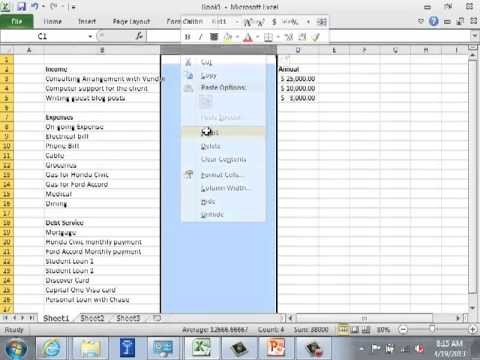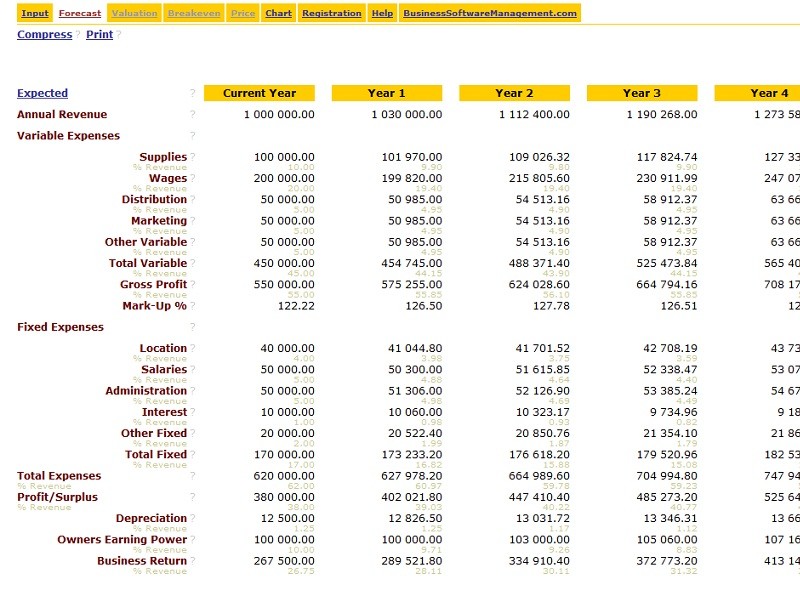The Basics of Building a Budget for Your Business
Post on: 10 Август, 2015 No Comment

Data-licious: How Dinner Lab Used Feedback to Improve Food and Conversation
March 27, 2013
For many small business owners, the process of budgeting is limited to figuring out where to get the cash to meet next weeks payroll.
There are so many financial fires to put out in a given week that its hard to find the time to do any short-or long-range financial planning. But failing to plan financially might mean that you are unknowingly planning to fail.
Business budgeting is one of the most powerful financial tools available to any small-business owner. Put simply, maintaining a good short- and long-range financial plan enables you to control your cash flow instead of having it control you.
The most effective financial budget includes both a short-range month-to-month plan for at least a calendar year and a long-range quarter-to-quarter plan you use for financial statement reporting. It should be prepared during the two months preceding the fiscal year-end to allow ample time for sufficient information-gathering.
The long-range plan should cover a period of at least three years (some go up to five years) on a quarterly basis, or even an annual basis. The long-term budget should be updated when the short-range plan is prepared.
While some owners prefer to leave the one-year budget unchanged for the year in which it provides projections, others adjust the budget during the year based on certain financial occurrences, such as an unplanned equipment purchase or a larger-than-expected upward sales trend.
Using the budget as an ongoing planning tool during a given year certainly is recommended. However, here is a word to the wise: budgeting is vital, but it is important to avoid getting so caught up in the budget process that you forget to keep doing business.
It is important to budget both the income statement and balance sheet. This enables you to consider potential cash-flow needs for our entire operation, not just as they pertain to income and expenses. For instance, if you had already been in business for a couple of years and were adding a new product line, you would need to consider the impact of inventory purchases on cash flow.

Budgeting only the income statement also doesnt allow a full analysis of the effect of potential capital expenditures on your financial picture. For instance, if you are planning to purchase real estate for your operation, you need to budget the effect the debt service will have on cash flow.
In the future, a budget can also help you determine the potential effects of expanding your facilities and the resulting higher rent payments of debt service.
In the startup phase, you will have to make reasonable assumptions about your business in establishing your budget. You will need to ask questions such as:
- How much can be sold in the first year?
- How much will sales grow in the following year?
- How will the products and/or services you are selling be priced?
- How much will it cost to produce your product? How much inventory will you need?
- What will your operating expenses be?
- How many employees will you need? How much will you pay them? How much will you pay yourself? What benefits will you offer? What will your payroll or unemployment taxes be?
- What will the income tax rate be? Will your business be an S corporation or a C corporation?
- What will your facilities needs be? How much will it cost you in rent or debt service for these facilities?
- What equipment will be needed to start the business? How much will it cost? Will there be additional equipment needs in subsequent years?
- What payment terms will you offer customers if you sell on credit? What payment terms will your suppliers give you?
- How much will you need to borrow? What will the collateral be? What will the interest rate be?
As for the actual preparation of the budget, you can create it manually or with the budgeting function that comes with most bookkeeping software packages.














